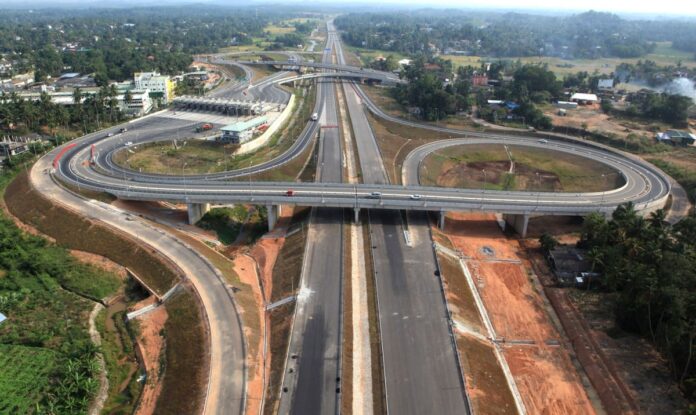The government has moved ahead with the long-delayed third phase of the Central Expressway, reviving a project mired in years of disputes over loans, tenders, and foreign contractors. The 13.8-kilometre stretch from Pothuhera to Galagedara will now be built by Maga Engineering (Pvt) Ltd, the lowest responsive bidder in a competitive process, according to senior officials of the Ministry of Transport and Highways.
This decision marks a decisive break from past approaches, shifting the project away from the troubled Japanese financing model toward direct state funding and domestic execution. Maga Engineering’s selection is being presented as a commitment to transparency and efficiency after nearly a decade of controversy.
Phase III of the Central Expressway spans 33 kilometres and includes interchanges at Pothuhera, Polgahawela, Rambukkana, and Galagedera. Work on the initial 13.8-kilometre section from Pothuhera to Rambukkana is already underway, with 19 separate contract packages awarded to local contractors. Officials say the stretch is targeted for completion next year, signalling long-awaited progress on an expressway seen as crucial to linking Colombo with Kandy.
The project’s history, however, tells a story of financial wrangling and tender irregularities. In 2019, the then government sought a US$1 billion loan from the Bank of Tokyo-Mitsubishi UFJ to fund Phase III. Japanese contractors Taisei Corporation and Fujita Corporation emerged as leading contenders, but the tender evaluation committee controversially rejected Fujita’s lower bid of Rs. 147 billion, declaring the company unqualified to handle such a large project. Instead, the contract was awarded to Taisei Corporation, whose quoted price was Rs. 159 billion. The decision fuelled criticism, particularly as the financing terms with the Japanese lender remained contentious.
In 2020, amid stalled negotiations and growing disputes with Japan over loan conditions, Sri Lanka terminated the arrangement and removed Japanese participation from Phase III altogether. The government then attempted to hand the project to a consortium of local contractors, but that effort too faltered, leaving the expressway in limbo.
These repeated setbacks have left the Central Expressway project, launched with great fanfare in 2016, saddled with accusations of irregularities, malpractice, and wasted years of planning. The resumption of construction under Maga Engineering is therefore being watched closely as a test of whether the current administration can deliver results where others failed.
For now, the shift to domestic contractors and state funding appears to have broken the impasse. Whether this new strategy can overcome the project’s troubled legacy and deliver the long-awaited Central Expressway remains to be seen, but the government’s latest push signals a determination to finally move beyond the controversies that have dogged it for nearly a decade.
